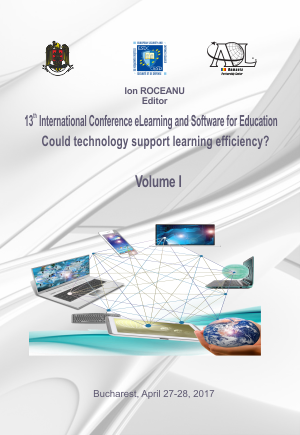THE WILLINGNESS OF PRESCHOOL TEACHERS TO BE PROFESSIONALLY TRAINED VIA DISTANCE LEARNING TO WORK WITH CHILDREN WITH DISABILITIES
THE WILLINGNESS OF PRESCHOOL TEACHERS TO BE PROFESSIONALLY TRAINED VIA DISTANCE LEARNING TO WORK WITH CHILDREN WITH DISABILITIES
Author(s): Miroslava Kojić, Smiljana Kojić-Grandić, Zagorka MarkovSubject(s): Social Sciences, Education
Published by: Carol I National Defence University Publishing House
Keywords: e-learning; inclusive education and upbringing; training; preschool teachers.
Summary/Abstract: The pedagogical knowledge and skills of preschool teachers have a great impact on the quality of an educational process. In developed countries, distance learning has become the integral part of an educational system. Are preschool teachers in our country ready to reinforce their professional competences for working with children with disabilities and their pedagogical strategies related to inclusive education through distance learning? In the theoretical part of the work we have explained the meaning of educational seminars for preschool teachers in Serbia and we have defined e-learning. The main objective of this research is to determine whether preschool teachers are ready for further education for working with children with disabilities and with children with special needs via e-learning. Furthermore, our aim is to determine whether there is a significant statistical difference in the terms of professional experience amount, age and the place of residence (rural-urban), in relation to the respondents’ willingness to accept training through e-learning acquirement for the realization of educational work with children with developmental disabilities in inclusive schools. The study involved 200 teachers employed in pre-school institutions in Kikinda, Novi Sad, Zrenjanin and Belgrade. The research’s results show that the preschool teachers younger in chronological age are statistically more significantly ready and that they see the benefits of learning via distance. There are no important statistical differences in the terms of demographic characteristics of respondents and the amount of work experience in relation to readiness for e-learning.
Journal: Conference proceedings of »eLearning and Software for Education« (eLSE)
- Issue Year: 13/2017
- Issue No: 01
- Page Range: 435-438
- Page Count: 4
- Language: English

